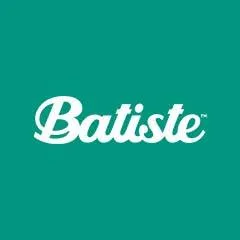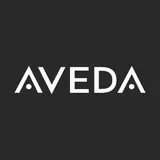
Batiste
Learn more about our scoring →
About Batiste
Batiste operates as a heritage haircare brand within Church & Dwight's portfolio, commanding substantial market presence in the dry shampoo category since its 1970 founding in the United Kingdom. The brand's core identity centers on no-water refresh solutions, maintaining accessibility through mass retail distribution including Target.
Sustainability performance reflects the parent company's corporate infrastructure rather than brand-specific initiatives, with Church & Dwight providing foundational frameworks for ingredient assessment, supplier oversight, and responsible sourcing commitments. The brand benefits from established protocols including comprehensive at-risk supplier evaluation and RSPO-certified palm oil sourcing, though these remain parent-level rather than Batiste-specific programs.
Significant gaps persist in climate strategy, independent ethical verification, and conservation programming. The corporate animal testing policy contains a legal requirement exception that undermines cruelty-free positioning, while the absence of third-party certifications across cruelty-free, vegan, and environmental categories reflects limited external validation of sustainability claims. Brand-level environmental targets and wildlife protection initiatives remain undisclosed.
The Good Stuff
Where Batiste appears to be making meaningful progress. We cross-referenced these findings with multiple independent sources.
Supply Chain Assessment Standards
Parent company Church & Dwight conducts comprehensive evaluation of 100% of at-risk suppliers across safety, labor practices, environmental impact, and ethical standards, with commitment to 96% RSPO Mass Balance certified palm oil sourcing
Ingredient Safety Evaluation
Environmental Safety Assessment Framework applies toxicity endpoint analysis including bioconcentration factors and aquatic toxicity testing to ingredient risk assessment across product development
Packaging Material Reduction
Naturally product line achieves 40% packaging material reduction compared to original 200 mL aerosol cans, demonstrating efforts to minimize material use in select SKUs
The Reality Check
Areas where the publicly available data gets murky, incomplete, or concerning. We're transparent about the limitations of our analysis.
Climate Strategy Absence
No brand-specific greenhouse gas emissions reporting, science-based climate targets, or disclosed absolute emission reduction commitments available in public sustainability documentation
Cruelty-Free Verification Gaps
Corporate animal testing policy contains legal requirement exceptions that permit testing in jurisdictions where mandated by law, with no third-party cruelty-free certification from independent auditing organizations
Conservation Program Void
Brand demonstrates no disclosed wildlife conservation partnerships, biodiversity protection initiatives, or habitat restoration programs despite operating in beauty category with significant environmental footprint
Batiste's
Impact Aura
A visual representation of Batiste's positive impact
across People, Planet and Animals
Each colored area represents the brand's performance in that sustainability category. The size and intensity of each blob corresponds to their score—larger, more vibrant areas indicate stronger performance.
Our Research
Key findings from our comprehensive analysis of Batiste's sustainability performance across People, Planet & Animals impact.
Positive Impact on People
Research Highlights
- Parent company Church & Dwight evaluates ingredients through an Environmental Safety Assessment Framework with product stewardship protocols including risk assessment of ingredients
- Supply chain oversight demonstrates 100% assessment of at-risk suppliers across safety, labor, environmental, and ethical standards
- Responsible sourcing commitment includes 96% RSPO Mass Balance certified palm oil across parent company operations
- Modern Slavery and Supply Chain Transparency statement published in compliance with UK legislation
- Brand-specific social impact initiatives remain underdeveloped with limited metrics or dedicated community programs disclosed
Evidence Strength
Parent company frameworks provide foundational structure, though brand-level transparency and independent verification remain limited
Positive Impact on Planet
Research Highlights
- Packaging innovation in Naturally line demonstrates 40% material reduction compared to original 200 mL cans
- Environmental Safety Assessment Framework applies toxicity endpoints including bioconcentration and aquatic toxicity to ingredient evaluation
- Product development integrates sustainability considerations with focus on reducing transportation and energy impacts
- Aerosol formulations contain volatile organic compounds (butane, isobutane, propane) as propellants across product lines
- Climate action lacks brand-specific science-based targets or disclosed absolute emission reduction commitments
Evidence Strength
Documentation exists for select initiatives like packaging reduction, but comprehensive environmental metrics and ambitious climate targets remain absent
Positive Impact on Animals
Research Highlights
- Corporate policy states no animal testing conducted unless legally required by regulatory authorities
- Select SKUs within Naturally line marketed with vegan formula claims, though not verified company-wide
- Legal requirement exception for animal testing undermines absolute cruelty-free positioning in certain markets
- No third-party cruelty-free certification from recognized independent auditing organizations
- Wildlife conservation support and biodiversity protection programs absent from brand-level initiatives
Evidence Strength
Policy documentation available but contains significant exceptions; absence of independent verification and conservation programs limits credibility
See the Receipts
We don't just make claims—here are the official certifications that prove Batiste's sustainability commitments.
Frequently Asked Questions
Is Batiste sustainable?
Batiste demonstrates moderate sustainability performance through parent company Church & Dwight's infrastructure, including supplier assessment protocols and responsible palm oil sourcing. However, the brand shows significant gaps in climate action strategy, with no disclosed science-based targets or emission reduction commitments. Packaging innovation exists in select product lines with 40% material reduction, but comprehensive environmental programs and third-party certifications remain absent. Performance reflects corporate-level frameworks rather than brand-specific sustainability leadership.
Is Batiste cruelty-free?
Batiste operates under a corporate animal testing policy stating no animal testing unless legally required by regulatory authorities. This legal requirement exception means the brand may conduct animal testing in jurisdictions where mandated by law, which limits cruelty-free positioning under stricter ethical standards. The brand lacks third-party cruelty-free certification from independent auditing organizations, preventing verification of no-testing claims through recognized certification programs.
Is Batiste vegan?
Batiste markets select SKUs within its Naturally line as containing vegan formulas, though this designation is not verified across all products company-wide. The corporate animal testing policy's legal requirement exception complicates vegan positioning, as some ethical standards for vegan cosmetics require absolute prohibition of animal testing. Without third-party vegan certification or comprehensive ingredient disclosure across all product lines, verification of vegan claims remains limited to marketing statements for specific SKUs.
What is Batiste doing for the environment?
Batiste's environmental efforts center primarily on parent company Church & Dwight's corporate initiatives rather than brand-specific programs. Documented actions include packaging material reduction of 40% in the Naturally line, application of Environmental Safety Assessment Framework to ingredient evaluation, and commitment to 96% RSPO Mass Balance certified palm oil. However, the brand lacks disclosed climate targets, water stewardship metrics, and biodiversity protection programs. Aerosol formulations contain volatile organic compound propellants, and comprehensive environmental impact reporting remains unavailable.
Who owns Batiste?
Church & Dwight, a publicly-traded consumer goods corporation, owns Batiste as part of its personal care portfolio. The parent company's corporate sustainability frameworks provide foundational infrastructure for Batiste's ingredient assessment, supplier evaluation, and responsible sourcing commitments. Sustainability performance reflects Church & Dwight's company-wide initiatives rather than Batiste-specific programs, with supplier assessment protocols, palm oil sourcing standards, and product stewardship guidelines extending across the corporate portfolio.
Does Batiste have any sustainability certifications?
Batiste demonstrates no third-party sustainability certifications from recognized independent auditing organizations. The brand lacks cruelty-free certification, vegan product verification, organic ingredient certification, climate neutrality validation, or environmental standard accreditation. This absence of external certification means sustainability claims rely on corporate policy statements and parent company frameworks rather than independent verification through established certification programs in the beauty industry.
Does Batiste test on animals?
Church & Dwight's corporate animal testing policy for Batiste states that animal testing is not conducted unless legally required by regulatory authorities in specific jurisdictions. This policy exception means Batiste may perform animal testing when mandated by law, distinguishing it from brands with absolute no-testing commitments regardless of legal requirements. The brand operates without third-party cruelty-free certification, which would provide independent verification of testing policies through recognized auditing organizations.
Ready to Shop Batiste?
Find Batiste products through our trusted retail partners
The Bottom Line
Batiste demonstrates moderate sustainability performance anchored in parent company Church & Dwight's corporate frameworks, with documented supplier assessment and ingredient evaluation protocols offset by significant gaps in climate strategy, independent ethical verification, and conservation programming. The animal testing policy's legal requirement exception and absence of third-party certifications limit credibility in cruelty-free and environmental claims, positioning the brand as reliant on corporate infrastructure rather than demonstrating category leadership in sustainability.


